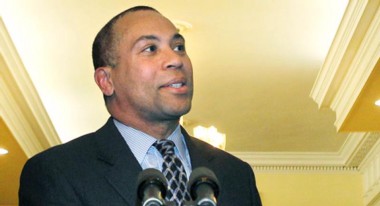A grassroots campaign to repeal Massachusetts’ casino legislation has cleared a major hurdle in its effort to put the matter before voters next year. Last week, Secretary of State William Galvin confirmed that the group had collected enough signatures to get the question on the ballot. (See “Do You Want Casinos?” Oct. 8, 2013, www.valleyadvocate.com.)
But the effort now faces another battlefield: the commonwealth’s highest court.
In September, Attorney General (and 2014 gubernatorial candidate) Martha Coakley ruled that the question, which would overturn the 2011 legislation that allows three casinos and one slots parlor in the state, was unconstitutional because it would violate the property rights of casino applicants. Repeal the Casino Deal sought an injunction of Coakley’s ruling from the SJC and was successful, which allowed the group to proceed with its signature collection.
The court is expected to take up the case early in 2014.
Meanwhile, proponents of the question will continue with work to move forward the ballot initiative. Once initiatives meet the first signature threshold, they go before the state Legislature for action. If the Legislature does not enact the proposed law by May 7, backers will have to collect another 11,485 signatures by July to get the question on the November ballot.
Kathleen Conley Norbut, a Monson resident and long-time anti-casino activist who is one of the plaintiffs in the SJC case, said she was a little worried about whether her group could collect enough signatures, given the number of local casino ballot questions that were also competing for activists’ time and attention. The results of those local ballot questions—voters in Palmer and East Boston rejected casino plans on Election Day, with Milford voters following suit a week later—suggest a turning of the tide, she said.
“I see the political landscape changing,” Conley Norbut said, pointing to the fact that a number of elected-officials-cum-“casino cheerleaders” will be, or might be, leaving office soon. That list includes state Sen. Gale Candaras (D-Wilbraham), who has said she’s considering running for register of the Hampden Probate Court, and Gov. Deval Patrick, who leaves office next year.
(Two candidates in the crowded 2014 gubernatorial field have said they support repealing the casino law: Republican Charlie Baker, who supports a single casino in the state, and Democrat Don Berwick, a casino opponent.)
Repeal the Casino Deal was represented in the injunction action by Matthew Cameron, an East Boston attorney who’s been involved with the anti-casino effort there. The group is still putting together its legal team for the SJC case; Conley Norbut said that a number of attorneys interested in the case cannot come on board because their firms have conflicts of interest due to involvement with the numerous casino proposals still in play. Still, she said, “We’re putting together a top-notch team.”
The campaign also counts among its leaders former Massachusetts AG Scott Harshbarger, an outspoken casino opponent.
As she goes about her daily life—walking her dog, shopping at the grocery store—Conley Norbut said, she hears from more and more people who are excited about the possibility of voicing their opinion on the casino issue via a statewide vote.
Those voices, she added, were disregarded when a handful of power players on Beacon Hill pushed through the legislation two years ago. While Massachusetts’ casino plan has plenty of flaws—it’s bad economic policy; it carries the threat of numerous social problems—the process by which it was created was also deeply flawed, she said: “The system’s broken, and that’s why we’re going in this direction.”•



